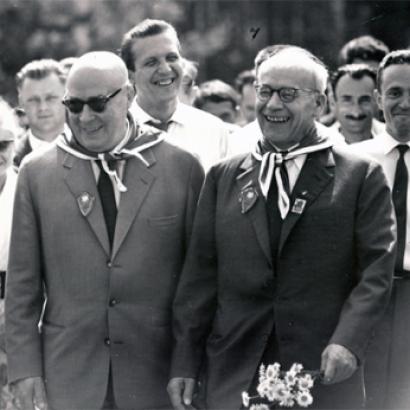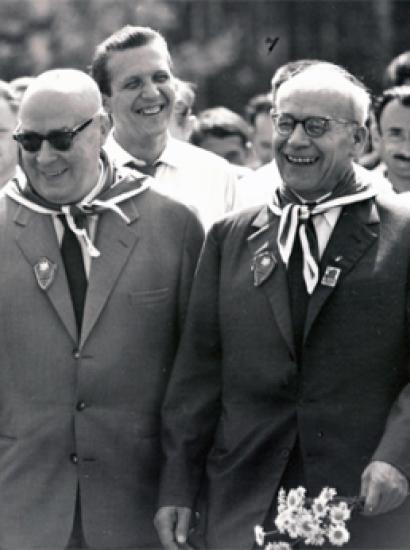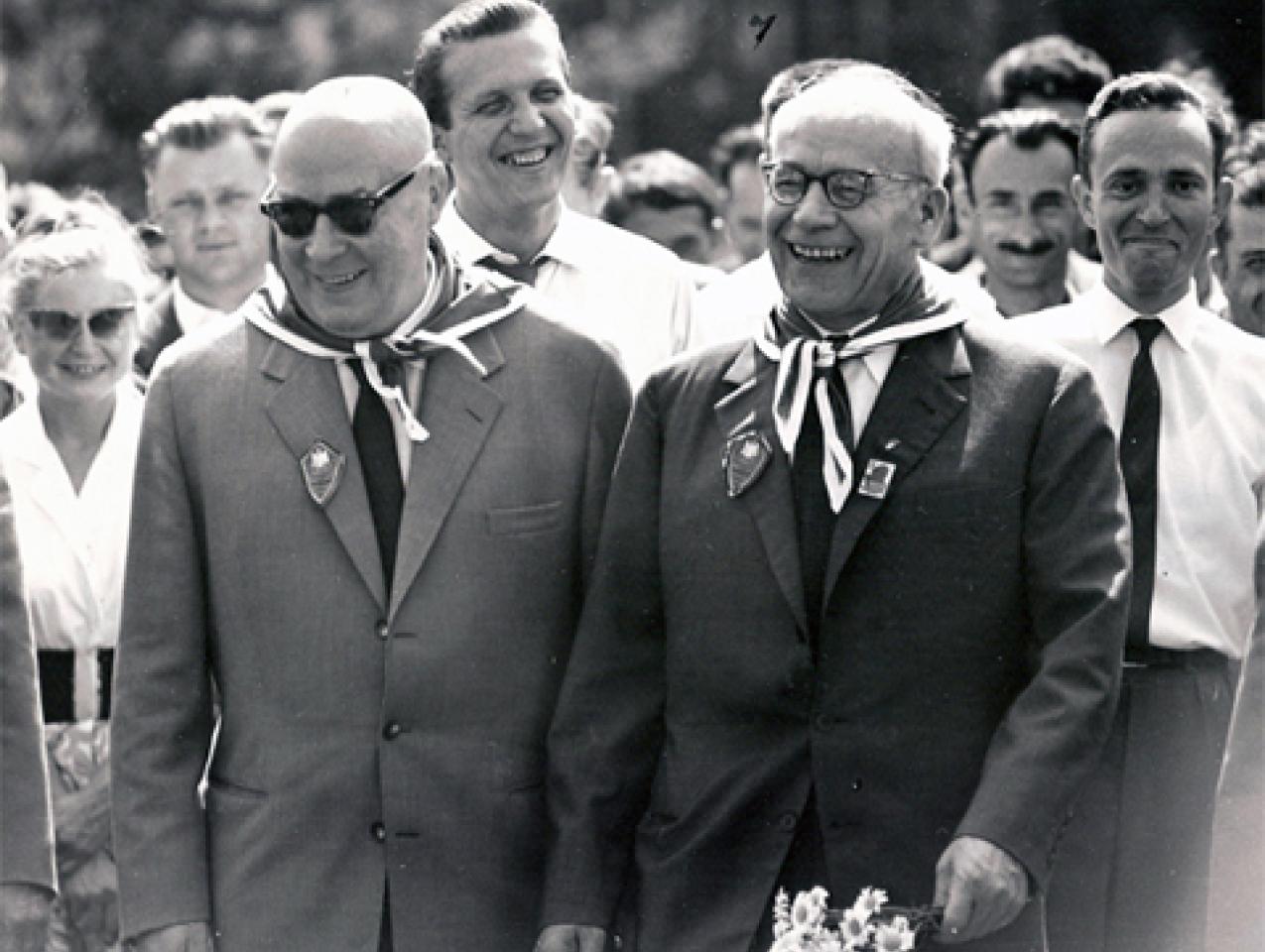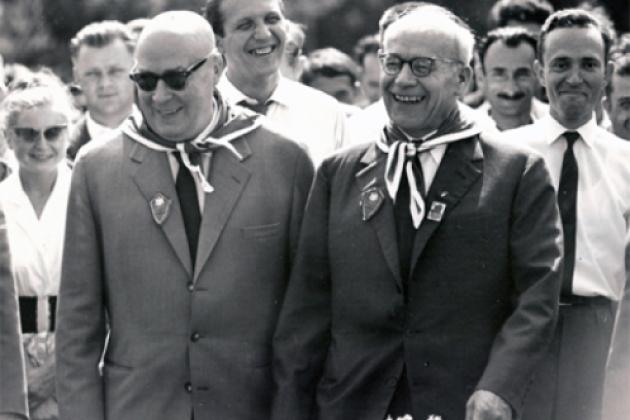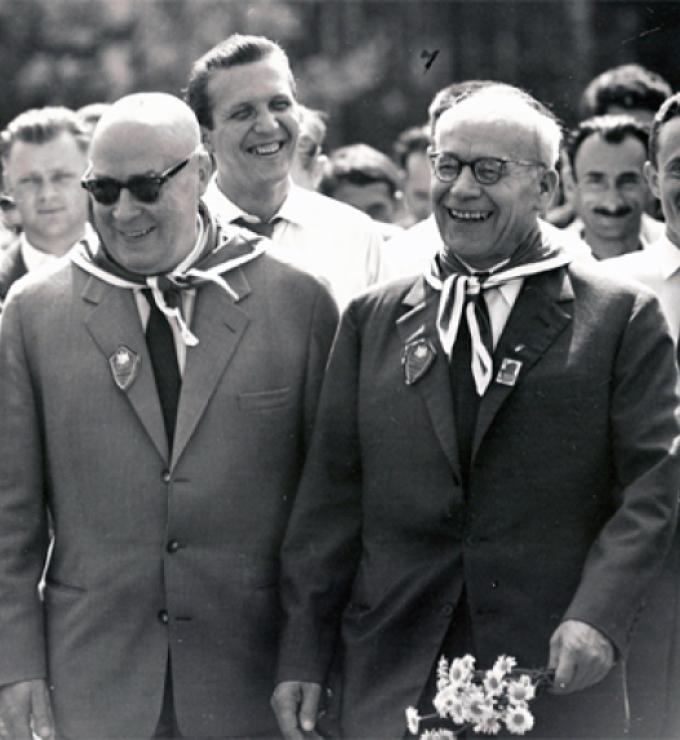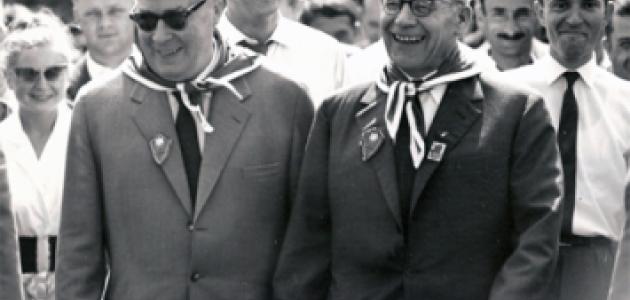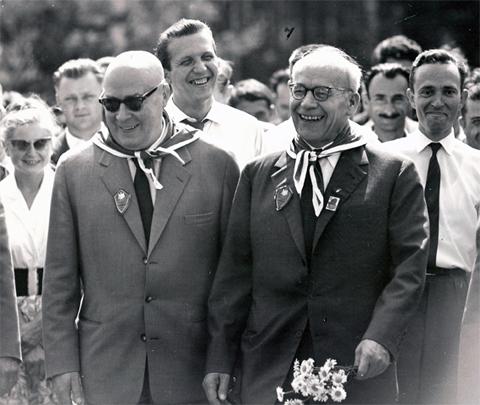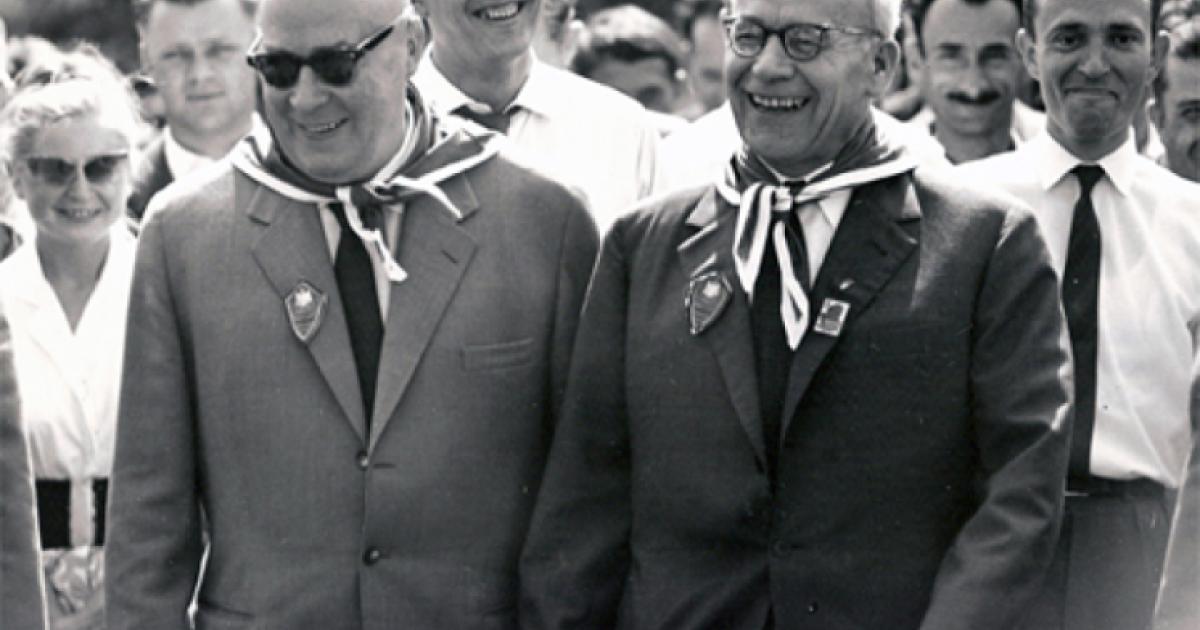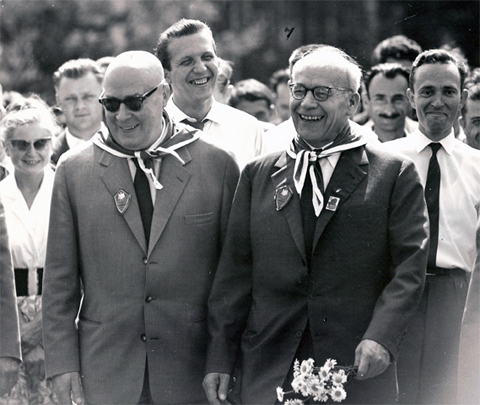
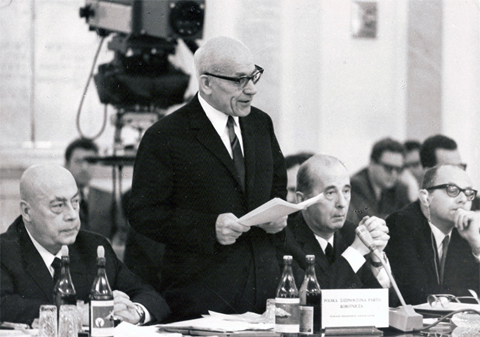
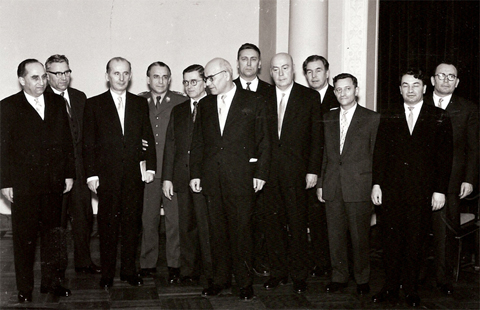
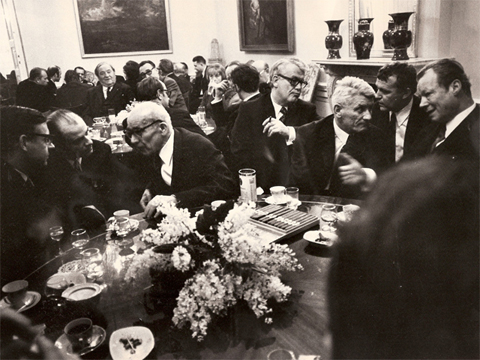
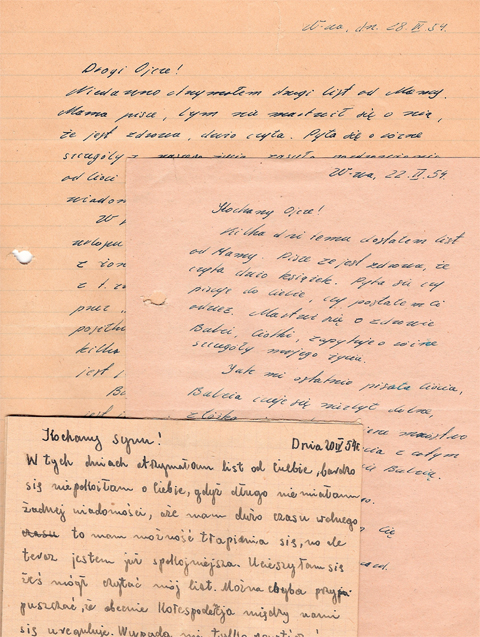
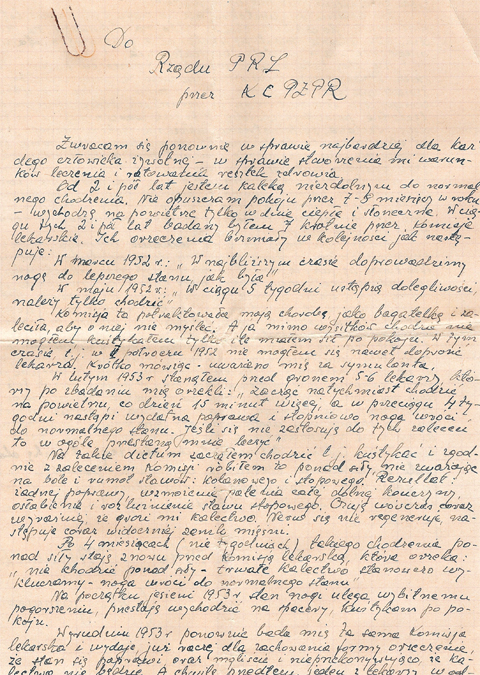
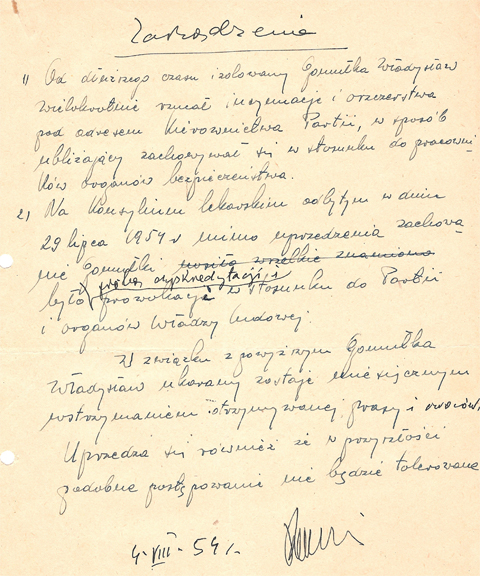
The Hoover Archives has added a collection that documents the career of Wladyslaw Gomulka, a Polish communist leader and first secretary of the Polish United Workers’ Party from October 1956 to December 1970. The collection consists of Gomulka’s early memoirs, the interrogation file compiled during his imprisonment in 1951–54, transcripts of oral history interviews with his two secretaries, and other documents and photographs. Suspected by Stalin of trying to turn Poland into another Yugoslavia and, although seen by many sympathetic Poles as trying to find a “Polish road to socialism,” Gomulka ultimately failed in his efforts to turn Polish People's Republic into a modern and prosperous European country. The margin of freedom allowed Poland by Moscow was indeed narrow, but Gomulka’s own ideological rigidness and lack of understanding and empathy for Polish national traditions and aspirations led to his demise.
The most important and unique material in the collection documents Gomulka’s imprisonment and investigation for “right-nationalist deviation” in preparation for a planned show trial that would strengthen Stalinist orthodoxy in the party. Gomulka was held in a Ministry of Public Security villa near Warsaw during most of 1951–54 and interrogated frequently. Unlike some of his former associates and tens of thousands of ordinary Poles, he was not physically abused but was under considerable psychological stress, isolated from his family and sources of outside information. His wife was imprisoned in a nearby house, but the two knew nothing of the other’s whereabouts. The couple’s son, Ryszard, remained free; his undelivered correspondence with his parents is included in the file. After Stalin’s death and the subsequent “thaw” in the Kremlin, Gomulka was released, in December 1954, and gradually resumed his government and party functions. The interrogation file was never sent to the ministry’s archives but was kept by a top member of the old regime. Many years later, one of his heirs passed it on to the Hoover Archives. During one of his recent visits to Warsaw, Maciej Siekierski, Hoover’s European curator, presented Ryszard Strzelecki-Gomulka, now in his mid-eighties and many years after his parents’ death, with copies of his family correspondence; he was not only pleasantly surprised but moved that the letters had survived and been made available to him thanks to a distant American institution.
The complete typescript of Wladyslaw Gomulka’s memoirs is the biggest item in the collection. That work, covering the author’s life through 1945 and edited by Andrzej Werblan, was published in two volumes in 1994; the original text however, is much longer and covers many events not included in the published version. Additionally, the collection contains transcripts of oral history interviews with two of Gomulka’s assistants, Walery Namiotkiewicz and Stanislaw Trepczynski, which were conducted in the Central Committee Archives in 1983, a year after Gomulka’s death.
The Wladyslaw Gomulka Collection is the latest addition to Hoover’s already strong documentation on communist Poland during the 1940s and 1950s, which includes the papers of such prominent individuals as Zygmunt Berling, Jakub Berman, Stefan Jedrychowski, Marian Spychalski, and Roman Zambrowski. Those, and more than three hundred other archival collections on twentieth-century Poland, make Hoover the premier institution for research on modern Polish history outside Poland.
Maciej Siekierski, Senior Curator siekierski@stanford.edu




